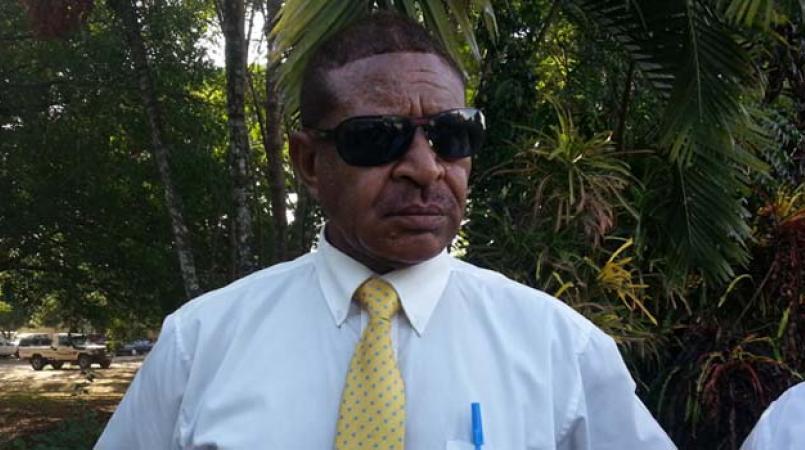
Former Police Commissioner Geoffrey Vaki has been acquitted by the Supreme Court after an appeal against his conviction and sentence for contempt of court was upheld.
A unanimous decision of the three-man Supreme Court bench was handed down today at 1.30pm, a short time after another Supreme Court bench consisting of three other judges dismissed the appeal filed by 40-year police veteran Toami Kulunga against his conviction and sentence.
While Kulunga will serve his seven months’ jail term at Bomana for contempt of court charges, Vaki is now a free man after the Supreme Court set aside his conviction and sentence, acquitting him on two charges of contempt of court.
On June 17, 2015, Chief Justice Sir Salamo Injia, in a 27-page ruling, convicted Vaki for wilfully refusing to execute a warrant of arrest against Prime Minister Peter O'Neill in June 2014.
On July 3, 2015, Vaki was sentenced to three years’ imprisonment with hard labour at Bomana. However, the Supreme Court granted him bail of K5,000, five hours after the court sentenced him.
He has been out on bail since, awaiting the decision of this appeal which went in his favour today, acquitting him of the offence.
The Supreme Court today ruled that the order or warrant was not personally served on Vaki to execute.
Vaki filed his appeal on two main grounds; that the trial judge fell into error for failing to apply the principal of all the elements of the offence of contempt, and failing to prove them beyond reasonable doubt.
The other ground of appeal was that he could or ought not to be found guilty of contempt in circumstances in which all parties misunderstood the effect of the arrest warrant.
Justices Stephen Kassman, Ambeng Kandakasi and Derek Hartshorn were all in agreement that the mandatory requirement, to hold someone guilty of contempt for wilful disobedience of an order of the court, was that the court must be satisfied beyond reasonable doubt that the alleged contemnor was in fact and lawfully, served personally the order to execute.
Justice Kandakasi said the warrant of arrest in this case came out through an administrative process, which did not have a force and effect of a court order.
He went on to say there had to be a positive finding that there was a valid court order which Vaki breached in order for the court to find him guilty of contempt of court.
